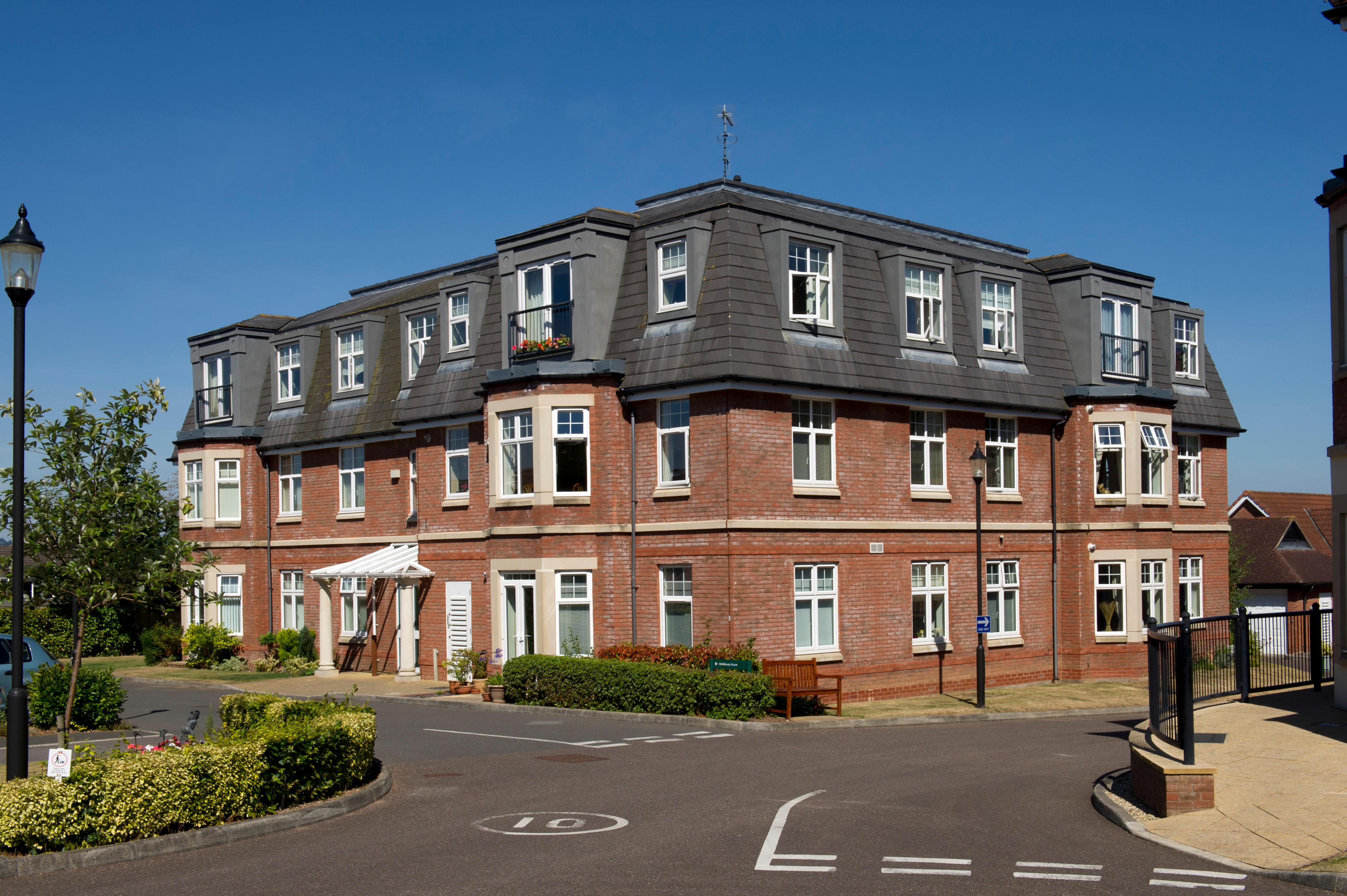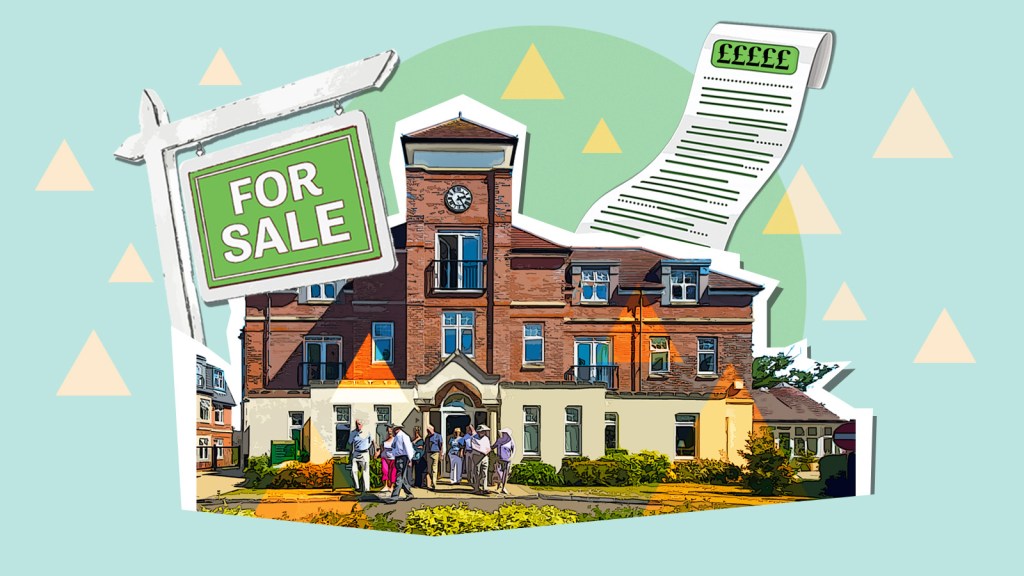Struggles Persist: Family Faces £43,000 Loss Over Unsuccessful Sale of Inherited Retirement Flat
Following the death of Naomi Carton at 99 in 2020, her retirement flat in Somerset was passed down to her son Richard and daughters Anthea and Michèle. Initially valued at £235,000, the property was meant to serve as a financial support during their retirement years.
However, now, five years later, the siblings are still grappling with the sale of the two-bedroom flat located in Taunton’s Blagdon Retirement Village, resulting in a dwindling inheritance that has already cost them £43,000.
To attract buyers, they have slashed the asking price to £165,000 since the flat hit the market in 2021, but they have yet to receive a single offer. Their annual expenses, including service charges and council tax, exceed £9,000.
Richard Carton, 75, expressed his frustration, stating, “Since the flat has been on the market, around £43,000 [from the inheritance] has gone into paying for the property, all because we can’t sell it. My parents would be appalled at how difficult this has become.”
This situation is increasingly common among families inheriting retirement properties, which often linger on the market as buyers lean toward modern developments with superior amenities or are deterred by high and complex fees.
A recent study by Hamptons highlights the financial strain on heirs who inherit such properties. The average annual service charge for UK retirement flats has risen to £3,779, up from £3,132 in early 2019. In contrast, the average service charge across all flat types is only £2,311.
According to the HomeOwners Alliance, many retirement complexes charge upwards of £7,000 annually in service fees, which cover building maintenance and additional services. These communities typically employ more staff and offer emergency systems, leading to higher costs for residents.
Currently, there is an estimated one million individuals living in 770,000 retirement homes across the UK, an increase from 739,902 in 2019, according to property firm JLL. These homes are specifically designed for those aged 55 and older.
The demand for retirement housing is on the rise due to an ageing population. The Government Office for Science predicts that the number of individuals aged 75 and above will expand from 6.31 million today to around 8.76 million by 2040, representing one in seven citizens.
Many of these developments are referred to as integrated retirement communities, which have elevated service fees as they offer round-the-clock staff, optional care services, and amenities such as gyms and cafés.
Paula Higgins from the HomeOwners Alliance emphasized, “Individuals are finding it exceedingly challenging to sell these properties due to exorbitant service charges and because the potential buyer pool is restricted by age limitations.”
In 2022, it took an average of 78 days to sell a retirement flat, significantly longer than the 50-day average for all flats. However, properties that attract little interest can linger on the market excessively—one in ten retirement flats remains unsold for over a year.
David Fell at Hamptons noted, “Sales data only reflects homes that successfully found a buyer. Nearly half of retirement flats struggle to sell on their first listing and may have to be relisted with a different agent or even auctioned later on.”
JLL reported that in 2022, just 66 percent of retirement homes retained their value upon resale.
Lisa Webb from the consumer advocacy group Which? explained, “The resale value can often fall short of the original purchase price. It’s similar to buying a new car, where depreciation occurs almost immediately—this can certainly apply to property as well.”
With rising service charges, potential buyers may be discouraged if they perceive these costs as excessively high.

Substantial Decline in Property Value
The Carton siblings purchased their flat for £215,000 in 2007 within a retirement community in Taunton operated by Retirement Villages Group (RVG).
Following Naomi’s death in 2020, the siblings secured probate in June 2021, when the property value was assessed at £235,000. After multiple price reductions, it is currently listed at £165,000.
A spokesperson for Retirement Villages acknowledged the family’s struggle to sell, stating, “We regret that it is taking time for the Carton siblings to finalize the sale of their property.”
According to the spokesperson, “Resident satisfaction at Blagdon Village is at 94 percent, and similar properties sell in under a year. Pricing in the village has remained consistent with the local market since 2021, and we have three comparable homes currently under offer averaging £223,000.”
The council tax for the Carton retirement flat is set to more than double next month to £5,162 annually, with Somerset County Council implementing a 100 percent second home premium. This premium, introduced in April, allows councils to impose elevated charges for second homes that are “unoccupied and substantially unfurnished.”
Richard Carton remarked, “My daughter has expressed, ‘Whatever you do, Dad, don’t leave this property to us.’ She understands the difficulties involved.”
Upon selling, the siblings will face a 12.5 percent fee from the sale price, known as an assignment fee.
Such fees, also known as exit or event fees, are quite common in integrated retirement communities to recover costs during the sale. Some exit fees can even reach up to 35 percent of a home’s market value, per research from the HomeOwners Alliance.
Peter White, age 68, is also experiencing challenges in selling his late parents’ retirement flat. With no funds remaining in his mother’s estate to cover service charges, council tax, and ground rent, the £1,000 monthly expenses are being deducted from him and his sister’s savings.
They inherited their mother Joan’s home at Elizabeth Place, a McCarthy Stone development in Market Harborough, Leicestershire, after her passing in May of last year.
Since listing it in September, they have had only a limited number of viewings. After lowering the asking price from £220,000 to £210,000, White has already filed two formal complaints to McCarthy Stone concerning what he sees as a lack of urgency in selling.
The exit fee for their property stands at 1.5 percent of the sale price, with a minimum fee of £2,400.
White commented, “When people are living in these properties, it can be quite manageable, but selling them turns into a nightmare. My advice is to steer clear of purchasing one.”
A McCarthy Stone representative stated, “We regret Mr. White’s concerns and strive to offer the best service and products for all our homeowners. Our in-house resales team has a solid track record, having resold 700 properties last year, with most achieving an increased net resale price.”
Considerations When Purchasing
If you or someone you care about is looking to buy a retirement property, it is crucial to understand all associated costs, including service charges and exit fees. Although developers should disclose these early in the process, many buyers are not aware of them until after purchasing.
It is also wise to check the lease length, as leases approaching 80 years require extensions that could incur significant costs.
Utilizing property websites like Zoopla and Rightmove can help you gauge how many properties are on sale in a particular development and their comparable sales prices, giving you a better idea of resale strength and ensuring a fair purchase price.
Higgins recommends involving family members in discussions regarding retirement property purchases to prevent any unexpected complications down the line.




Post Comment